Life is unpredictable. Secure your future today.
Providing you with comprehensive insurance solutions to safeguard your home, car, family, and future.
AUTO INSURANCE
Your ride, your rules—but make sure you're insured. Get covered today!
Accidents happen—but with the right auto insurance, you won’t have to worry about the unexpected. We offer top-tier policies that protect you from costly repairs, medical expenses, and liability risks, keeping you and your vehicle safe on the road.
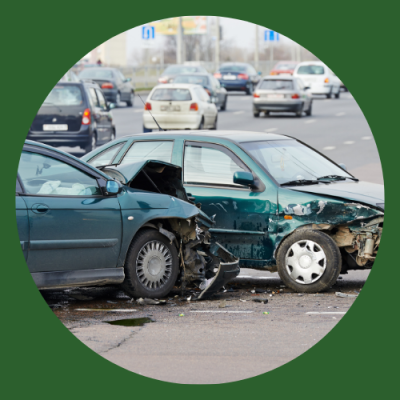
HOME INSURANCE
Your home is your castle.
Get the right coverage to protect it.
Your home is one of your biggest investments—don’t leave it vulnerable to unexpected disasters like fires, storms, or theft. With our coverage, you’ll get financial protection against costly repairs and replacements, plus liability coverage in case of accidents on your property.

LIFE INSURANCE
Secure their future—don't wait another day.
Life is unpredictable, but your family’s financial security doesn’t have to be. With a proper life insurance policy, you can make sure that your loved ones are protected no matter what. Our policies provide confidence by covering final expenses, replacing lost income, and securing your family’s future.

FLOOD INSURANCE
Don’t wait for the waters to rise—get flood insurance today.
Floods can strike without warning, leaving devastating damage in their wake. With flood insurance, you can protect your home and belongings from the unexpected. Our policies offer comprehensive coverage, so you’re not left with costly repairs after a flood.
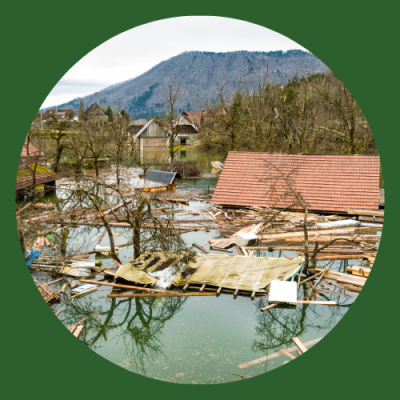
Get protected today with coverage from one of our exceptional insurance carriers.



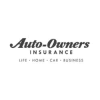




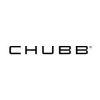



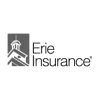
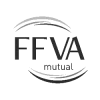










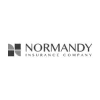



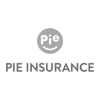
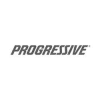
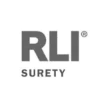
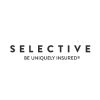


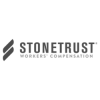


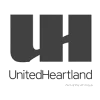



WHY CHOOSE THE SOUTHERN AGENCY
1. Independent & Unbiased
We will work hard for you to ensure that you get great coverage by comparing multiple carriers.
2. Tailored Solutions
Every individual and family has unique insurance needs—our team takes the time to understand your lifestyle and tailor policies that fit.
3. Competitive Rates
We represent 40+ carriers—providing you with many coverage options to fit your budget.
4. Dedicated Support
From policy selection to claims assistance, we are dedicated to providing friendly guidance and peace of mind.
FREQUENTLY ASKED QUESTIONS
What is personal insurance, and why do I need it?
Personal insurance includes policies that protect you, your family, and your property from financial loss due to accidents, disasters, or other unforeseen events. It typically includes life, auto, home, and flood insurance.
How do I determine what type of personal insurance coverage I need?
The best way to determine your insurance needs is to assess your assets, liabilities, and risks. Our experienced agents can help evaluate your situation and recommend coverage options built for your needs.
Can I bundle multiple insurance policies for savings?
Yes! Many insurance companies offer discounts when you bundle home, auto, and other policies together. We can help you find the best bundle options to save you money.
How does my credit score impact my insurance rates?
In many states, insurance companies use credit-based insurance scores to determine premiums. A higher score can lead to lower rates, while a lower score may increase your costs.
Is auto insurance required by law?
Yes, most states require drivers to carry a minimum amount of liability insurance. Tennessee, for example, requires liability coverage of at least $25,000 per person, $50,000 per accident for bodily injury, and $15,000 for property damage.
What does auto insurance cover?
Auto insurance typically includes:
- Liability coverage (bodily injury and property damage to others)
- Collision coverage (damage to your car in an accident)
- Comprehensive coverage (damage from theft, vandalism, weather, etc.)
- Uninsured/underinsured motorist coverage (protection if the other driver lacks insurance)
- Medical payments or personal injury protection (PIP) (covers medical costs regardless of fault)
What affects my auto policy premium and how are my auto insurance rates developed?
There are many factors that will affect insurance pricing. These factors include:
- Prior Carrier (a preferred carrier may not be willing to write a person that was previously insured with a substandard carrier)
- How Much Insurance Coverage You Purchase
- Whether You Drive Your Vehicle for Business
- Driving Record (accidents and violations)
- Year, Make, and Model of Your Vehicle
- How Far You Drive To and From Work
- Previous Insurance Claims History
- Garaging Location/County
- Marital Status
- Credit
- Age
Where does my insurance company collect data from in underwriting my personal auto insurance policy?
The state driver’s license database, and organizations like Experian, LexisNexis Consumer Services, Equifax, or TransUnion.
Does my credit score affect my auto insurance coverage in any way?
In most states, your creditworthiness has a big impact on your premium. Insurance carriers will pull credit data and background from organizations like Experian, LexisNexis Consumer Services, Equifax, or TransUnion. The justification for using this data is simple: there is a direct connection between people that pay their bills on time and the potential to losses.
How can I lower my auto insurance premium?
You can lower your premium by:
- Maintaining a clean driving record
- Increasing your deductible
- Bundling policies (e.g., auto and home)
- Qualifying for discounts (safe driver, multi-car, good student, etc.)
Does my auto insurance cover rental cars?
Yes, your auto policy can cover both the physical damage and liability; however, there are some considerations that you must know:
- Where the vehicle is driven (typically, your auto policy will not cover a rental car in a foreign country);
- It will depend if you have physical damage coverage on one or more of you vehicles on your auto policy;
- Who is driving the vehicle; and
- Many other variables
For more information on your policy, please contact one of our agents for more information.
Can I use my car for business purposes such as ridesharing, food delivery, or parcel delivery?
Using your personal auto for delivery services may open a gap in your insurance because most personal auto policies do not provide coverage while using your vehicle for delivery purposes. If you use your vehicle to deliver food, packages, or other goods for compensation, your personal policy may not cover accidents, damage, or liability that occur during these activities.
To ensure you have adequate protection, it’s advisable to check with your insurance provider about your specific policy terms and consider obtaining a commercial auto insurance policy or a “rideshare endorsement,” which might also extend coverage to include delivery services.
Before you consider these activities, call The Southern Agency for sound advice, especially if you’re driving for organizations like Uber® or Lyft®.
Always clarify your usage with your insurer to avoid any gaps in coverage.
Can I purchase a “full coverage” auto policy?
Unfortunately, no, there is no such thing. Covering “everything” is simply not possible. For example, wear and tear and mechanical breakdown are just a few exclusions that will never be covered under a personal or commercial auto policy. The word “full,” can fool you!
When could I expect an auto insurance rate change?
Unless you have an endorsement that “locks” your rates, your rates are going to change from renewal to renewal, sometimes up and sometimes downward. The Southern Agency will check at each renewal to confirm that your policy premium is competitive and not needing attention.
When should I update my personal auto insurance policy?
We believe that once a year, you should contact your agent to discuss your needs and see if there are any changes that need to be made.
What types of homeowners insurance policies are available?
Common homeowners insurance policies include:
- HO-1 (Basic Form) – Covers limited named perils such as fire and theft.
- HO-2 (Broad Form) – Covers additional named perils beyond basic coverage.
- HO-3 (Special Form) – Most common; provides open peril coverage for your dwelling and named peril coverage for personal property.
- HO-4 (Renters Insurance) – Covers personal belongings and liability for renters.
- HO-5 (Comprehensive Form) – Offers open peril coverage for both dwelling and personal belongings.
- HO-6 (Condo Insurance) – Covers personal property and internal structures for condominium owners.
- HO-8 (Modified Coverage Form) – Covers older or historic homes where replacement costs exceed market value.
What does homeowners insurance cover?
Standard policies typically cover:
- Dwelling coverage (repairs/rebuilds for structural damage)
- Personal property coverage (furniture, electronics, clothing, etc.)
- Liability protection (injuries or property damage to others)
- Additional living expenses (ALE) (if your home becomes uninhabitable)
What is not covered by homeowners insurance?
Most standard policies do not cover:
- Flood damage (requires a separate flood policy)
- Earthquakes (requires separate coverage)
- Normal wear and tear
- Damage from neglect or intentional acts
How much homeowners insurance do I need?
You should have enough coverage to rebuild your home at today’s construction costs, replace your belongings, and protect your assets in case of liability claims.
Does homeowners insurance cover water damage?
It depends on the cause. Sudden leaks from appliances or burst pipes are usually covered, but gradual leaks, sewer backups, and flooding typically require additional policies.
What type of alarm systems might give me a discount on my homeowners policy?
Installing monitored alarm systems—including burglar alarms, fire alarms, smoke detectors, carbon monoxide detectors, or sprinkler systems—can typically qualify you for discounts on your homeowners insurance. These discounts vary depending on the insurance provider and the system installed, with monitored systems generally offering the greatest savings.
What is the difference between an open peril policy and a named peril policy?
Open Peril Policy: Covers damage from any cause unless specifically excluded in the policy. This is broader and provides more comprehensive protection.
Named Peril Policy: Covers only losses from perils specifically listed (named) in the policy, such as fire, theft, or vandalism. Anything not named is not covered.
What are the different types of valuation clauses in a policy?
Valuation clauses determine how your insurer values your property at the time of a loss. Common types include:
- Actual Cash Value (ACV) – Pays replacement cost minus depreciation.
- Replacement Cost – Covers the expense of replacing the item with a new one of similar kind and quality, without deducting depreciation.
- Guaranteed or Extended Replacement Cost – Offers additional coverage beyond the standard replacement cost limit, usually 10–25%, to fully rebuild your home in case of higher-than-expected construction costs.
- Agreed Value – Sets a fixed amount agreed upon by the policyholder and insurer beforehand, typically used for items with unique or hard-to-determine values, such as antiques or art.
What are the different types of life insurance?
There are two main types:
- Term Life Insurance – Provides coverage for a set number of years (e.g., 10, 20, 30 years).
- Permanent Life Insurance – Includes whole life and universal life, which offer lifelong coverage and a cash value component.
How much life insurance do I need?
A common rule of thumb is to have 10-15 times your annual income in coverage, but your exact needs depend on debts, family expenses, and financial goals.
Can I get life insurance if I have a pre-existing condition?
Yes, but the rates and availability depend on the condition. Some policies offer guaranteed acceptance without a medical exam.
What happens if I miss a life insurance payment?
Most policies have a grace period (typically 30 days) to make a late payment before coverage lapses. Some policies offer reinstatement options if coverage is canceled.
Do I need flood insurance if I don’t live in a flood zone?
Yes, about 25% of flood claims come from homes outside high-risk flood zones. Flood insurance is a smart investment for any homeowner, as standard home policies do not cover flooding.
What does flood insurance cover?
Flood insurance typically covers:
- Structural damage to your home (walls, foundation, electrical, plumbing)
- Essential appliances (HVAC, water heaters, refrigerators)
- Personal belongings (furniture, electronics, clothing)
How do I purchase flood insurance?
Flood insurance is available through the National Flood Insurance Program (NFIP) and private insurers. Our team can help you find the right coverage.


